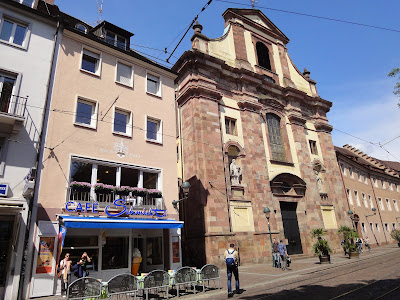Germany is famous for its beer, but not all beers are brewed the same. And each town or even village in Germany has its own beer(s), with an individual flavour and one-of-a-kind taste unique to the place. The beer produced in one particular village in northern Germany will taste completely different to the beer brewed in a mountain village somewhere in the Alps.
For beer lovers, any trip to Freiburg, the university town in southern Baden, is incomplete with a visit to the private brewery known affectionately by locals as Feierling. This place serves arguably one of the best home brewed beers in southern Germany, and is a popular meeting place for residents of the university town as well as incoming visitors. Me and my classmates used to hold our weekly Stammtisch gathering at this place, and whenever friends came to visit, Feierling is always an integral part of the city tour programme around Freiburg and the environs.

The main attraction of Feierling is the in-house brewery with two giant brass beer vats in the centre of the building, which also houses a restaurant. During my student days in Freiburg, this place is the regular meeting point of fellow students after seminars, and its outdoor beer garden, under the chestnut trees with gravel ground, provides the ideal set-up for some mind-provoking post-seminar intellectual discussions - an experience which makes life in a German university town so special compared to other university towns in other European countries.

















